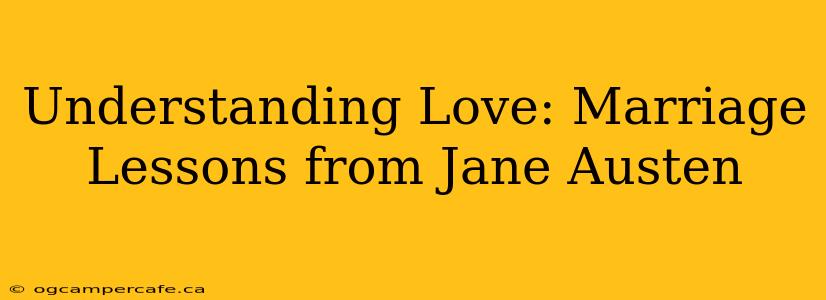Jane Austen's novels, while seemingly tales of romance and societal maneuvering, offer surprisingly insightful lessons about love, marriage, and the complexities of human relationships. More than just charming stories, her works provide a timeless examination of what constitutes a successful and fulfilling partnership, highlighting both the pitfalls and the rewards of matrimony. Through her witty observations and well-developed characters, Austen unveils truths about love that remain relevant even today. This exploration delves into the enduring wisdom offered by her novels, examining the nuances of love and marriage as depicted within their pages.
What are the different types of love explored in Jane Austen's novels?
Austen masterfully portrays various types of love, ranging from the passionate infatuation of youthful romance to the deep, enduring affection of a mature partnership. We see the fleeting, superficial attraction in characters like the impulsive Lydia Bennet, whose infatuation with Wickham blinds her to his true character. Conversely, the unwavering devotion between Elizabeth Bennet and Mr. Darcy exemplifies a love built on mutual respect, understanding, and intellectual connection. Elinor Dashwood's quiet, steadfast affection for Edward Ferrars demonstrates the power of enduring love despite societal pressures and personal obstacles. These diverse portrayals highlight that love isn't monolithic; it takes many forms, each with its own complexities and challenges.
How does Jane Austen portray the importance of social standing in marriage?
Social standing played a significant role in marriage during Austen's era, and her novels reflect this reality without shying away from its complexities. The pursuit of advantageous matches, often driven by financial security and social elevation, is a recurring theme. However, Austen also critiques this societal pressure, showcasing the pitfalls of marriages solely based on social standing. Characters like Charlotte Lucas, who marries Mr. Collins for security, demonstrate the compromises women were often forced to make. In contrast, Elizabeth Bennet's rejection of Mr. Collins and her eventual union with Mr. Darcy highlight the importance of personal compatibility and genuine affection over mere social expediency. Austen subtly underscores the limitations and unhappiness that can arise from prioritizing societal expectations over personal fulfillment in marriage.
What role does communication play in successful marriages according to Jane Austen?
Effective communication, or the lack thereof, is a critical element in Austen's portrayal of successful marriages. The misunderstandings and miscommunications that plague relationships, especially in the early stages, often lead to conflict and heartache. Elizabeth Bennet's initial prejudice against Mr. Darcy stems from a lack of understanding and clear communication, highlighting the importance of open dialogue and overcoming initial biases. The eventual success of their relationship is directly linked to their ability to communicate honestly and openly, even when confronting difficult truths about themselves and each other. Austen subtly emphasizes the necessity of clear, respectful communication as a cornerstone of a thriving marriage.
Does Jane Austen endorse marrying for love?
While societal pressures surrounding marriage are prominent in Austen's novels, the overarching message strongly favors marrying for love – or at least for compatibility and mutual respect. The unhappy marriages depicted serve as cautionary tales, demonstrating the consequences of prioritizing social standing or financial security over genuine affection. The eventual happiness of couples like Elizabeth and Darcy, and Elinor and Edward (after overcoming obstacles), underscores Austen's belief in the importance of shared values, intellectual connection, and emotional intimacy as crucial components of a lasting and fulfilling marriage. Her novels ultimately champion the pursuit of a marriage founded on a solid foundation of love and mutual understanding.
What are the challenges faced by women seeking fulfilling marriages in Jane Austen's novels?
Austen's heroines consistently face societal constraints and challenges in their pursuit of fulfilling marriages. Financial dependence, limited social mobility, and societal expectations regarding female behavior significantly impact their choices. They often navigate complex social dynamics, family pressures, and the limitations imposed on women's autonomy. These challenges highlight the gendered inequalities present during Austen's time and the resilience and resourcefulness required for women to achieve genuine happiness within a restrictive societal framework. Understanding these challenges provides a crucial context for appreciating the strength and agency displayed by her female characters.
Jane Austen's novels transcend their historical setting, offering timeless wisdom on love and marriage that resonates with contemporary readers. Her keen observations about human nature and relationships continue to inspire and challenge us to examine our own perspectives on love, commitment, and the pursuit of a fulfilling partnership. The enduring appeal of her work lies in its insightful portrayal of the complexities of human connection and the enduring quest for happiness in love.
